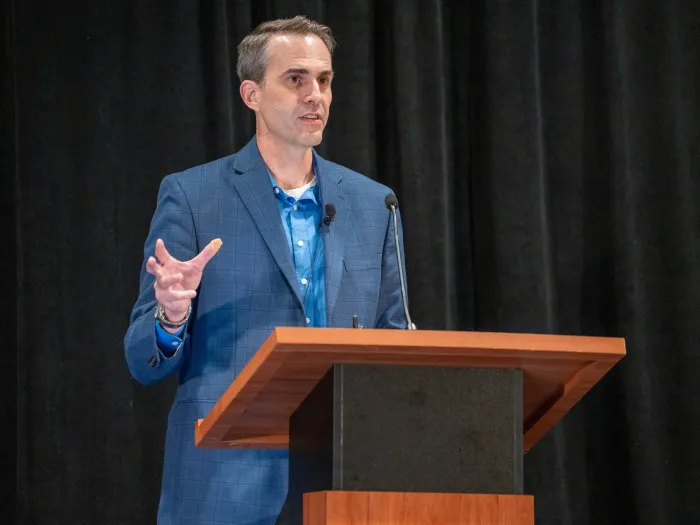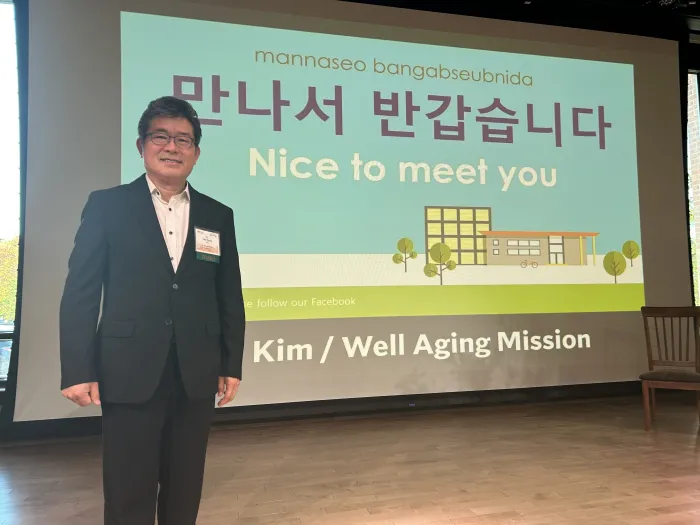No ordinary sign(s)
The Rev. Jacob Lee has a vision to grow a trilingual Texas congregation

MCALLEN, Texas — A boldly painted sign advertising “Korean classes and fellowship” may strike passersby as out of the ordinary on a farm to market road in rural South Texas.
Yet all signs suggest that something extraordinary is in fact happening on State Highway 495 in McAllen.
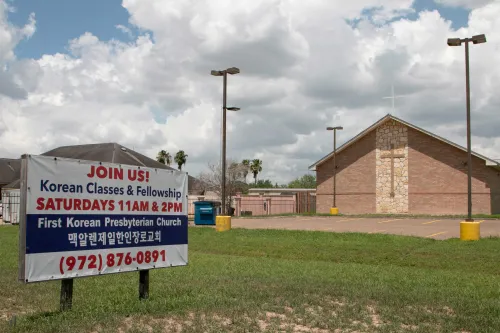
The sign — with the perhaps unexpected invitation it offers — is the handiwork of the Rev. Jacob Keunhyung Lee, pastor of the First Korean Presbyterian Church of McAllen. Lee, a former businessman, is no stranger to reading and testing signs of all kinds “to see whether they are from God.”
It was in his native South Korea where Lee was called to study theology at the urging of his beloved mentor, the Rev. Seo Ja Il, before following the signs that pointed him to the United States.
“In Korea, I was thinking about my daughter and my son,” said Lee, who was ordained in 1999 to the ministry of Word and Sacrament by the Presbyterian Church in the Republic of Korea. “I wanted my children to grow up in the United States and get an American education. I was drawn to American Christian culture and history, but I knew life in America wouldn’t be easy. To be a minister in the U.S., I knew I needed more study. I needed to know how to preach to people in their life.”
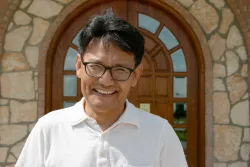
Once Lee and his family took their leap of faith to immigrate to the U.S., they settled in Dallas, where he opened — and subsequently sold — his dental laboratory business “because it was not satisfying.”
“I used the proceeds of the sale to pay off my seminary debt,” he said, “which freed me to minister to the homeless through a program of Grace Presbytery. We served meals and talked with the people on the first Saturday of every month. The experience prepared me for my first call at a new church plant in Buena Park, California, where there was a large Korean population.”
While serving that congregation, Lee earned a doctoral degree from Fuller Seminary, a course of study that led him three years ago to return with his family to Texas, this time to accept the call in McAllen.
“It was a big cultural change,” offered Lee’s wife, Diamond.
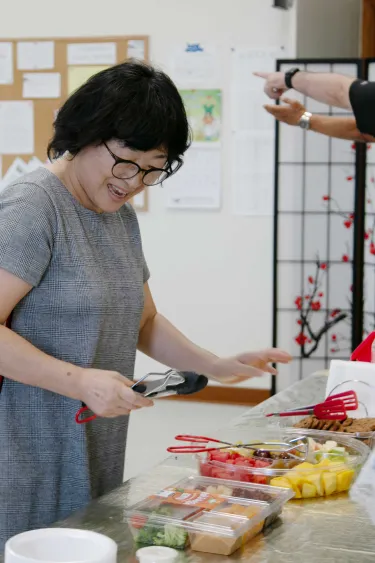
The family was soon to discover that many Koreans live and work in the area.
“There are maybe five or six Korean restaurants here,” Lee said. “And if the Korean people aren’t restaurant owners, many of them work in the maquiladoras [foreign-owned factories primarily in Mexico]. They want their families to move to McAllen even though they work in Reynosa [Mexico].”
Lee added that the Rio Grande Valley is also home to many laborers from Peru, Nicaragua and other Latino/a countries.
“I focus on evangelism,” he said.
Welcoming Spanish speakers to First Korean Church alongside its Korean and English speaking members was a natural for Lee, in large part because a former congregation of Mission Presbytery, Nueva Vida, had recently closed.
Once the Nueva Vida project had dissolved, a handful of its former worshipers chose to join First Korean.
“Now we always have three languages in our trilingual worship,” said Lee. “Praise songs are sung by everyone together, each in their own language, with Korean, English and Spanish subtitles. I preach the sermon in Korean, with my daughter, Jasmine, translating it into English. Jasmine also sings with our praise band.”
Lee said that the worshiping community evokes the vision in Revelation 7:9-10 of “a great multitude from every nation, tribe, people and language.”
And, on July 27, when a new class of ruling elders is ordained in Korean, English and Spanish to form the church’s first multicultural session, it will be the culmination of a host of signs that Lee has been interpreting all along.
Including the kind of vision that he said doesn’t happen to him every day.
About a year ago, Lee entered the sanctuary and suddenly found himself kneeling before the chancel steps.
“After I prayed deeply to God to touch my body, to anoint me,” he said, “I remember perfectly that my whole body was anointed from above, like oil flowing. I remember looking to the words of the Bible, Psalm 133, which matched my vision. I prayed, ‘God, I know the situation. God, call me here. Touch me.’ Then I saw the word ‘Jerusalem.’ I saw the dome of the Temple. I was thinking that God means for me to protect this church, to keep this church.”
And Lee has ambitious plans to do just that.
“We started a Korean language class and resource center to serve the local community, and there’s more to come,” he said. “We’re also planning a Korean library as a cultural hub. We’re working with Puentes de Cristo to do ministry at the U.S.-Mexico border. We’re addressing big issues like immigration, education, jobs and the health needs of our community.”
The Rev. Dr. Sallie Watson, the PC(USA)’s Associate Director for Mid Council Relations and a former presbytery leader for Mission Presbytery, praised Lee’s leadership.
“He is in the dictionary under energy, intelligence, imagination and love,” Watson said.
As he paused to reflect on his experience in the sanctuary that day, Lee said it was unusual for him to have had a vision. And while nowadays he has a “regular ministry,” he said that the memory of the vision sustains him.
“Whenever my ministry feels very, very hard,” said Lee, “I remember my vision at the time. It’s very comforting to me. Whatever the future may hold, I know that my wife, my family, and my beloved congregation will continue to shape me into maturity.”
You may freely reuse and distribute this article in its entirety for non-commercial purposes in any medium. Please include author attribution, photography credits, and a link to the original article. This work is licensed under a Creative Commons Attribution-NonCommercial-NoDeratives 4.0 International License.

